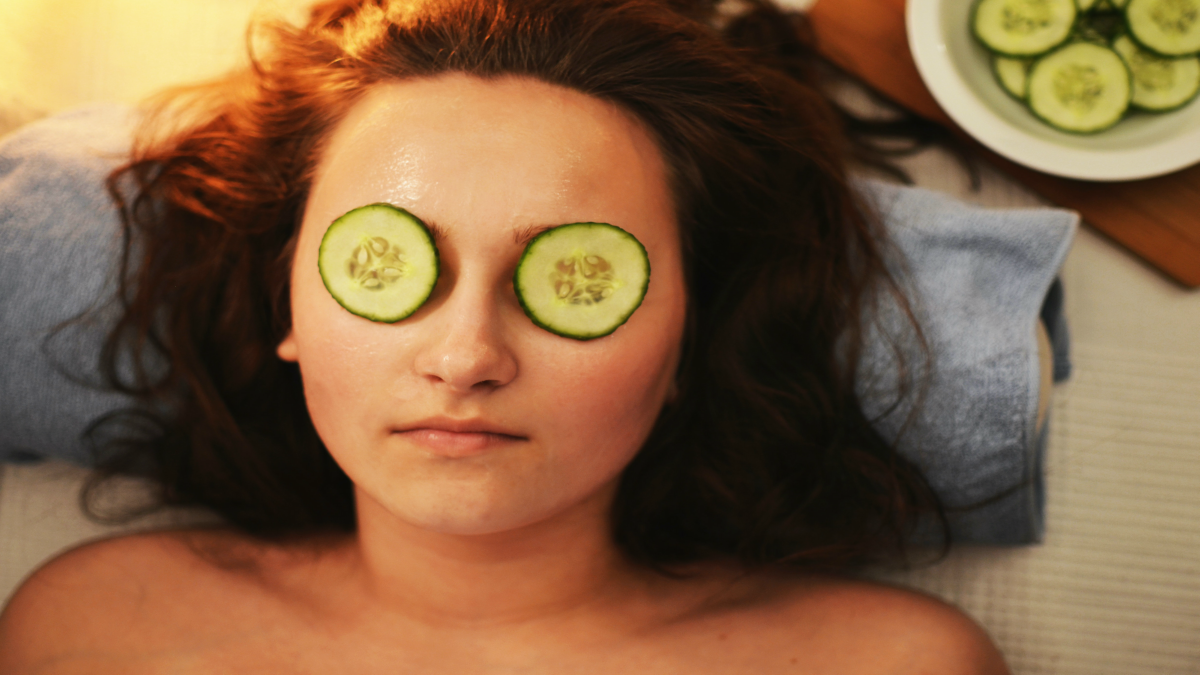
We are all in the same boat, learning to weather the storm called the coronavirus pandemic. Passing hours at a stretch at home, working and doing chores, is not that easy. Ergo, we are finding ourselves having bouts of stress and anxiety. Being engulfed with uncertainty and constant overthinking are some other side effects of these testing times. It can be difficult to get through the day at times. People are facing issues such as lack of sleep and motivation as well as problems with digestion and skin and hair issues, among others. Feeling burdened with other people’s expectations and comparing oneself with happy faces on social media are also leading to pessimistic thoughts. So, we need to take a break and practise self-care.
Self-care can mean different things for different people. It can mean working out, nourishing the body with healthy food, pampering the skin with home remedies and face masks, mindfulness, listening to music, reading books, setting achievable goals and other such activities. The purpose is to feel better by listening to what one’s mind and body needs.
Today, health is one of the top priorities for all, be it mental health or physical health. Self-care is a necessary human activity which is under our control. We all need to take out time from our busy schedules for self-care. A sense of realisation will come only when we start to follow a good schedule which includes self-time or ‘me time’ for at least an hour in a day, suggests Dr Priya Kaul, spiritual life coach and hope creator. She elaborates, “Post getting up in the morning, one should have some ‘me time’, sit in the balcony, and connect with nature and the greenery around. All this time is essential and helps one to relax and rejuvenate.”
“Always give importance to the small things which one tends to ignore on a daily basis, it is an important factor during self-care. One should let their heart speak and the best way to do it is by often conversing with someone whom they are close to and can connect with.
Also punctuate the day with mini-meditation. Be aware of one’s thoughts and feelings, the sensations happening in one’s body,” Dr Kaul advises further.
“The focus should be on spiritual, mental and physical self-care to live a productive life and experience inner peace and contentment,” believes spiritual coach ModMonk Anshul, adding that it is not difficult to integrate small changes and self-care activities over a period to create moments of peace in modern life and can be done in various ways. ModMonk Anshul suggests:
(a) Create space for spiritual development in everyday life, and start by taking out 10 minutes daily to introspect and observe oneself non-judgmentally. Also, meditate.
(b) Practice silence for 10 minutes a day. The maximum energy is lost while speaking. So practising silence can nurture calmness which helps in mental reaction management and in dealing with anxiety and depression.
(c) Express gratitude to oneself every day. We often forget to be grateful to our bodies for functioning well. The cells in our bodies have cell memory and they react to the way we treat them over a period. If they are treated with love and appreciation, they heal and help to maintain good physical health.
(d) It might sound simple, but reading good books which help one open their mind and bring down the walls of preconceived notions and ideas can help one grow as a person. Now more than ever before, we’re thinking about how we live, how we eat and how we work. Our minds and bodies are the machines that run our lives and we have to ensure we give them fuel by working out, eating well, sleeping well and staying happy, opines Sarvesh Shashi, the founder of Sarva and Diva Yoga. He adds, “While the recipe for wellness might differ from person to person, I swear by yoga and have had the opportunity to help a lot of other people with it too.” By yoga, what he means is a lifestyle and a way of listening to one’s body and mind. It also includes training the mind to focus on one’s breath and control every feeling in the body with the breath. Shashi shares a quick tip, “If one is feeling anxious or restless, close the eyes and take a deep breath in. Hold it for a few seconds and sigh it out. One will notice feeling a tad calmer. Repeat this a few more times and notice the difference. Now imagine feeling like this every day. That’s yoga.”
Tips on mindfulness for self-care
1) ‘Me time’ in the morning: Mornings offer a great opportunity to practice mindfulness. The day is just beginning, it is nice and quiet, and one may have a few moments to oneself. Instead of getting out of bed and rushing through a morning routine, sit for a few minutes, be thankful for the day and just be in the present. One might also choose to sit on the couch and concentrate on controlled breathing.
2) Eat consciously: With our busy schedules, eating has become something done in passing. Try slowing down, cooking the food and eating purposefully. Choose live foods with a variety of different colours, textures, and flavours. Take time to chew and appreciate each bite. Doing so is better for your digestion and can be enjoyable and relaxing.
3) Meditation: Meditation is the art of mindfulness. In meditating, one is taking the time to connect with one’s mind. It can also be great for relaxation and stress relief.
4) Confront your feelings: In being mindful, we shouldn’t avoid our feelings. Part of it is being in the present moment, just the way it is. Sometimes, that might include feelings of joy, but one should not want to try to force happy thoughts or resist any particular emotional response. Sometimes, one just needs to accept unpleasant emotions as a part of the moment. Accept disappointment, sadness, anger, jealousy and other emotions as what they are and allow oneself to feel them. —By Dr Priya Kaul, spiritual life coach
Bid adieu to Covid blues with Ayurvedic remedies
1) Circadian rhythm: The first step is to align your body to nature. Rise with the sun and set with the sun. As difficult as it may seem, wake up 45 minutes before sunrise, drink 200 ml of warm water and engage in mild exercise and stretching. This will aid the colon to evacuate waste and toxins from the body that affect mental and emotional wellbeing too. Start your day with herbal teas and a small bowl of fruits and have the biggest meal in the afternoon. Avoid eating heavy meals after sunset.
2) Oil pulling: A simple Ayurvedic ritual, oil pulling has multiple health benefits. Take a teaspoon of warm sesame oil and swish it around your mouth for 5 to 15 minutes. This improves dental and gum health, removes parasites and bacteria, and helps reduce kapha and vata imbalance in the head region. Kapha dosh is responsible for bronchial health and vata is responsible for the movement of thoughts in the head. Oil pulling efficiently flushes out anything accumulated in the sinuses and also reduces excess thoughts and restlessness in the mind. Make sure to follow it with gargling a mix of warm water, turmeric and salt.
3) Abhyangam: This is a simple full body massage that improves blood circulation, sleep patterns, skin, hair and overall moods. It stimulates the toxins towards the gut so you can easily evacuate the waste. Engage in a full body oil massage with a concoction of warm herbal oils like dhanwantaram thailam or even cooking oils like cold-pressed coconut oil, sesame oil, almond oil and castor oil. Follow with a warm shower or an Epsom salt bath. You can also massage your hands and legs with warm sesame oil at bedtime to improve sleep patterns
4) Milk at bedtime: One can have a cup of warm dairy-based or vegan milk (like coconut milk or almond milk) at bedtime. Add 1 teaspoon of clarified butter (ghee) to cure constipation or add 1/4th teaspoon of turmeric to reduce inflammation or add a pinch of nutmeg to help cure insomnia. —By Dimple Jangda, celebrity Ayurvedic health coach and founder of Prana















